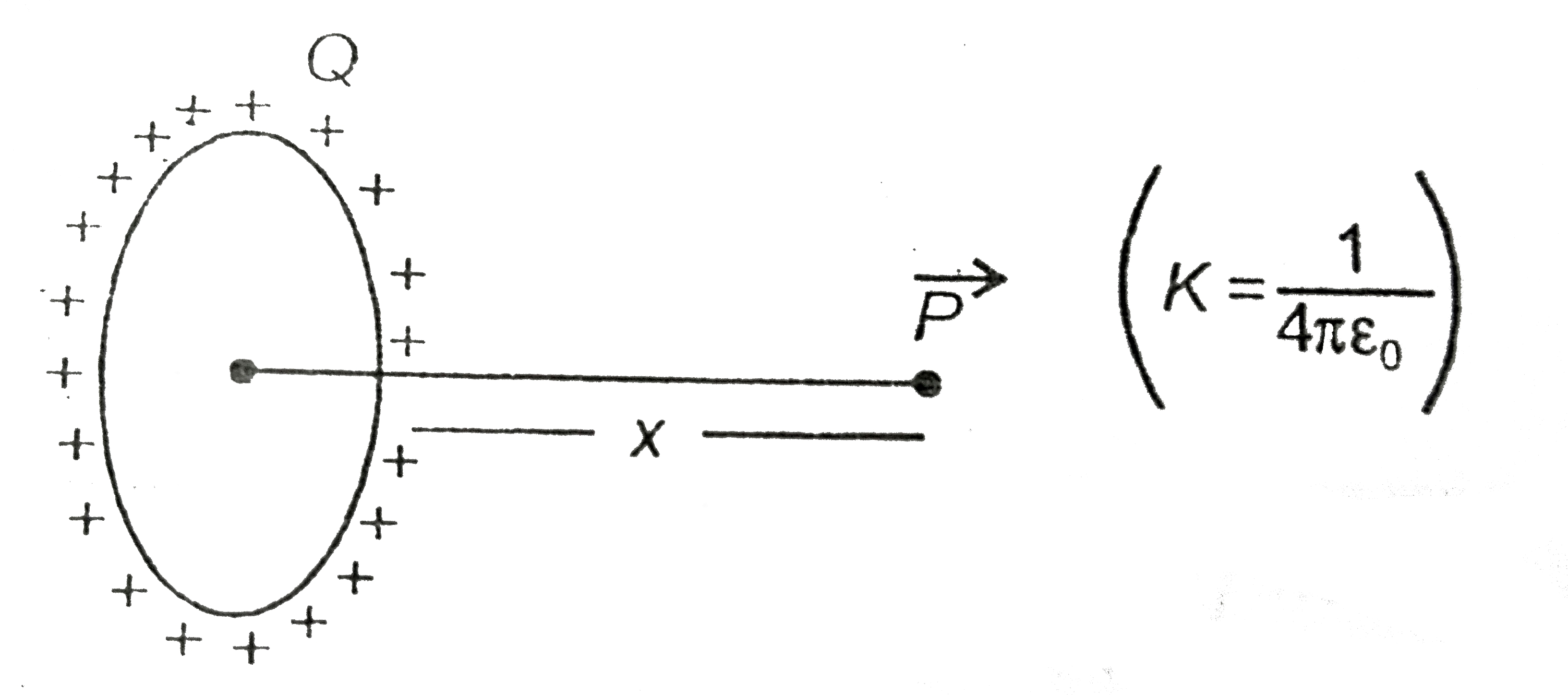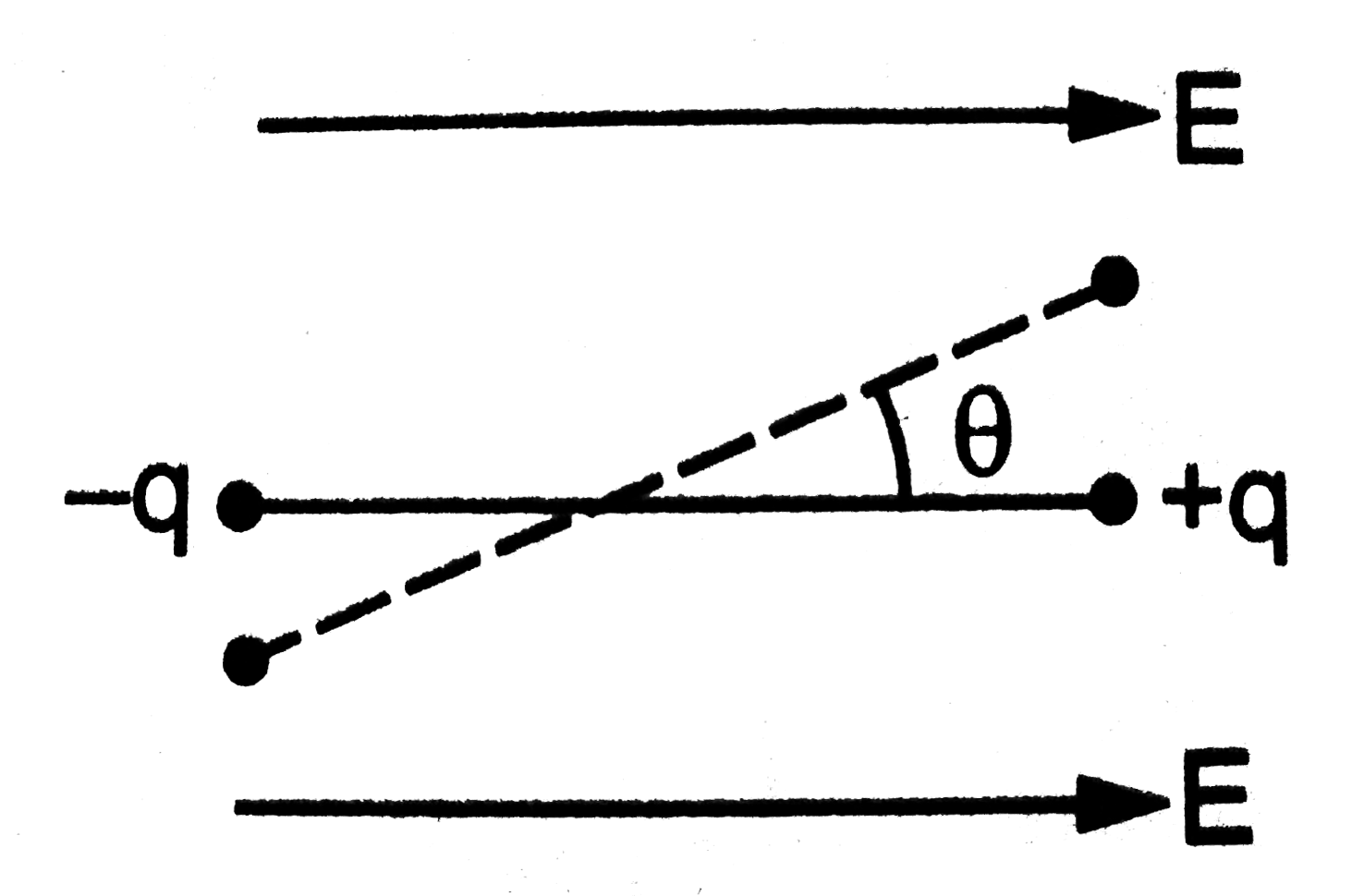A dipole is placed in xy plane parallel to the line y=2x. There exists a uniform electric field along z-axis. Net force acting on the dipole will be zero. But it can experience some torque. We can show that the direction of this torque will be parallel to the line.
y=2x+1
y=−2x
y=−12x
y=−12x+2
The correct Answer is:C, D
To solve the problem step by step, we will analyze the given situation involving a dipole in an electric field.
Step 1: Understand the Configuration
We have a dipole placed in the xy-plane, and it is aligned parallel to the line given by the equation y=2x. This means that the dipole moment vector →p can be expressed in terms of its components along the x and y axes.
Step 2: Define the Dipole Moment
Since the dipole is along the line y=2x, we can express the dipole moment vector as:
→p=p^i+2p^j
where p is the magnitude of the dipole moment along the x-axis.
Step 3: Define the Electric Field
The electric field →E is uniform and directed along the z-axis. We can represent it as:
→E=E^k
where E is the magnitude of the electric field.
Step 4: Calculate the Torque
The torque →τ experienced by a dipole in an electric field is given by the cross product of the dipole moment and the electric field:
→τ=→p×→E
Substituting the expressions for →p and →E:
→τ=(p^i+2p^j)×(E^k)
Step 5: Compute the Cross Product
Using the properties of the cross product:
→τ=pE(^i×^k)+2pE(^j×^k)
From the right-hand rule, we know:
- ^i×^k=−^j
- ^j×^k=^i
Thus, we can write:
→τ=pE(−^j)+2pE(^i)
This simplifies to:
→τ=2pE^i−pE^j
Step 6: Analyze the Direction of Torque
The torque vector can be expressed as:
→τ=(2pE)^i−(pE)^j
This indicates that the torque has components in both the x and y directions. The direction of the torque vector is parallel to the line defined by y=2x.
Conclusion
The torque experienced by the dipole is not zero, and its direction is indeed parallel to the line y=2x.
---
We have a dipole placed in the xy-plane, and it is aligned parallel to the line given by the equation y=2x. This means that the dipole moment vector →p can be expressed in terms of its components along the x and y axes.
Since the dipole is along the line y=2x, we can express the dipole moment vector as:
→p=p^i+2p^j
where p is the magnitude of the dipole moment along the x-axis.
The electric field →E is uniform and directed along the z-axis. We can represent it as:
→E=E^k
where E is the magnitude of the electric field.
The torque →τ experienced by a dipole in an electric field is given by the cross product of the dipole moment and the electric field:
→τ=→p×→E
Substituting the expressions for →p and →E:
→τ=(p^i+2p^j)×(E^k)
Using the properties of the cross product:
→τ=pE(^i×^k)+2pE(^j×^k)
From the right-hand rule, we know:
- ^i×^k=−^j
- ^j×^k=^i
→τ=pE(−^j)+2pE(^i)
This simplifies to:
→τ=2pE^i−pE^j
The torque vector can be expressed as:
→τ=(2pE)^i−(pE)^j
This indicates that the torque has components in both the x and y directions. The direction of the torque vector is parallel to the line defined by y=2x.
The torque experienced by the dipole is not zero, and its direction is indeed parallel to the line y=2x.
Similar Questions
Knowledge Check
A dipole of moment →p is placed in a uniform electric field →E. The force on the dipole is →F and the torque is →τ
A(i), (ii) and (iii) are correctB(i) and (ii) are correct and (ii) is wrongConly (i) is correctD(i) and (ii) are correct and (iii) is wrong
A dipole of dipole moment →P is placed in uniform electric field →E, then torque acting on it is given by
View SolutionEquipotential surfaces associated with a uniform electric field along positive x-axis are planes parallel to
View SolutionA short electric dipole is placed at a distance x from centre O on the axis of a ring of radius R and charge Q is uniformly distributed over tis.

The net force acting on the dipole will be
View Solutionshow an electric dipole formed by two
. particles fixed at the ends of a light rod of length l. The
. mass of each particle is m and the charges are -q and
. +q . The system is placed in such a way that the dipole
. axis is parallel to a uniform electric field E that exist
. in the region. The dipole is slightly rotated abut its
. centre and released. Show that for small angular
. displacement, the motion is anguler simple harmonic
. and find its time period.

View SolutionWhen an electric dipole is placed in a uniform electric field making angle θ with electric field, it experiences a torque τ. Calculate the minimum work donein changing the orientation to 2θ.
View SolutionThere exists an electric field of 1NC−1 along Y direction. The flux passing through the square of 1 m placed in xy−plane inside the electric field is
View SolutionThe equation of a line given by 4−x3=y+33=z+26. Write the direction cosines of a line parallel to this line.
View Solution